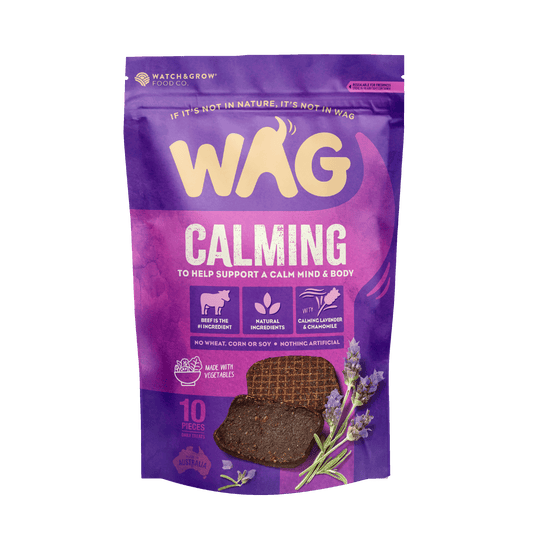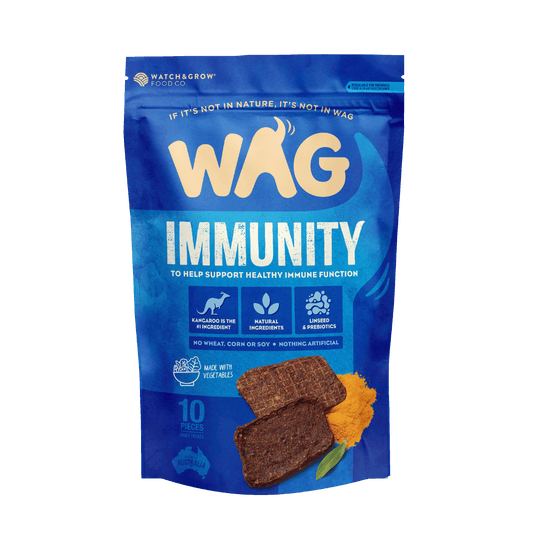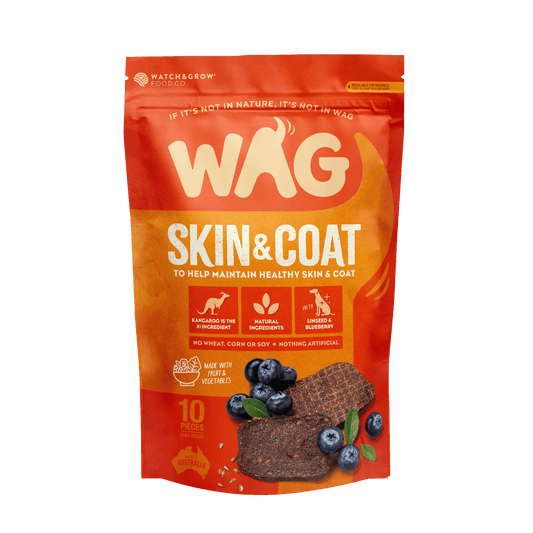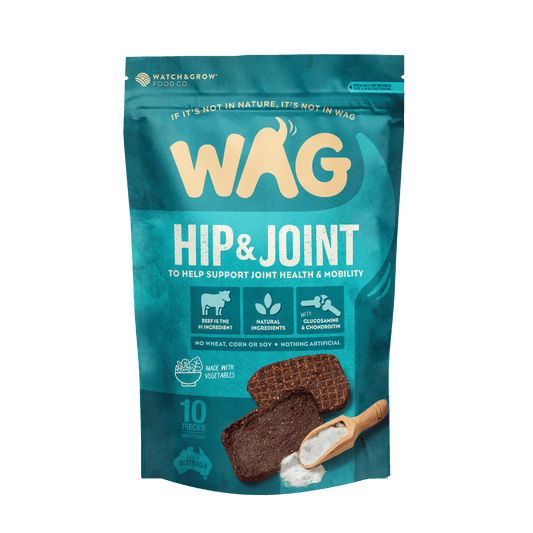Fur parents love to spoil their canine companions, but it’s not always clear what dogs can and can’t eat. Many dog owners have likely found themselves asking ‘is peanut butter safe for dogs?’.
Pet parents will be pleased to know that YES, dogs can eat peanut butter! You may have noticed your furry friend goes crazy for peanut butter, making it a great occasional treat for training, hiding medication, rewarding good behaviour, or even distracting your pooch while you trim their nails or give them a bath.
However, before you rush off to get a jar of peanut butter for your furry friend, make sure you know what to look for in the ingredient list. First and foremost, it's important you select a peanut butter that does not contain xylitol.
What's the deal with xylitol?
Xylitol is a substance that is often used as a sugar substitute, and is sometimes found in peanut butter. Xylitol is extremely toxic to dogs, even in small doses. It can cause low blood sugar (hypoglycaemia), liver failure, seizures and even death.
The signs of xylitol poisoning in dogs include vomiting, lethargy, difficulty walking or standing, seizures and coma. If you think your dog is showing signs of xylitol poisoning, contact a vet right away.
Other common sources of xylitol include chewing gum, chocolate, some baked goods and toothpaste. Pet owners should ensure they keep any items containing xylitol out of reach.
What peanut butter can dogs eat?
As well as choosing xylitol-free peanut butter, you should look for ingredients that are low in sugar. There are many natural peanut butters on the market that are made of pure peanuts without added salt or sugar.
As long as it doesn't contain xylitol or too much added sugar, it doesn't matter if you choose a smooth or crunchy peanut butter.
Some peanut butters contain palm oil to halt the natural separation of the product. Make sure you choose to support brands that take care to use sustainably sourced palm oil, or select a brand that doesn't contain it at all.
Which peanut butter brands are the best bet? There's no one brand of peanut butter that's the best, just make sure you check the ingredients label.
If reading ingredient labels to choose a peanut butter is all too overwhelming, consider making homemade peanut butter. That way you know exactly what is going into your doggo's special treat.

How do I know if my peanut butter contains xylitol?
In Australia, by law, all products that contain xylitol must have it listed in the ingredients list.
How much peanut butter can I give my dog?
As with any treats for pooches and humans alike - moderation is key! As a general rule of thumb, treats should not exceed 10% of the dog's diet and daily intake.
Remember that small dogs shouldn't be given as much peanut butter as big dogs - it's all relative!

Why peanut butter is a good treat
Peanut butter is considered a high value treat - one that is sure to cause some excitement for your pet. This can make it very useful for training purposes or as a reward for particular behaviours.
Peanut butter can be a good way of getting healthy fats into the diet of your furry friend. It can also be an excellent source of vitamin B, vitamin E and protein. Rich in fat and calories, peanut butter can cause weight gain in dogs if given in high amounts - something to be mindful of, as the percentage of overweight pets is on the rise.
Check out our Get WAG peanut butter filled beef bone, a treat for your best friend with a tasty peanut filling.
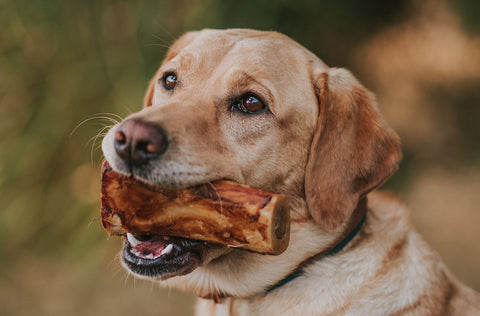
How should I give my dog peanut butter?
Give them a spoon to lick off themselves, or dollop a small amount on top of their food. If you want to give your dog a treat that will keep them occupied for a little longer, put some peanut butter in a kong or moo tube so your doggo can work their way to the good stuff. Peanut butter is also a great option to use to seal a goat horn - check out our post for how to fill goat horns for a long-lasting treat.

Can dogs have peanut allergies?
Although peanut allergies are not as common in dogs as humans, it's not unheard of. As with the introduction of all new foods, introduce slowly and watch for an allergic reaction (such as itching, redness and scratching).
If someone in the house has a peanut allergy and you'd rather avoid offering it to your dog, your pooch may be able to tolerate other nut butters. The same rules apply about reading the label for added ingredients, and offer small amounts to begin with, as some dogs may not tolerate almonds or other nuts very well.
Following this advice for choosing a safe brand, dog owners can rest assured knowing dogs can eat peanut butter. It’s a great treat for your canine companion, with the added benefit of containing vitamins B and E, healthy fats and protein. Here at Get WAG we're passionate about offering delicious and natural dog treats, so your furry family member can enjoy the very best. Take a look at our healthy dog treats with zero additives today.
Shop the Recipe
WAG Team
Up Next
What Are Normal Puppy Behaviours? Our Comprehensive Guide to Training Your New Puppy


